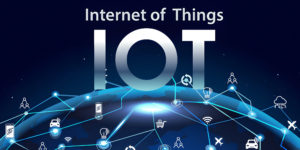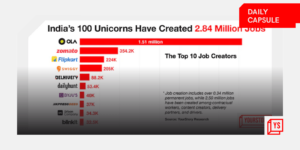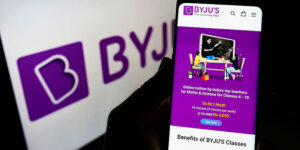CII’s annual Global Knowledge Summit is being held entirely online on April 8-9 this week. The theme of the 16th summit is Transforming Knowledge Management for Hybrid Learning and Hybrid Workplaces.
As media partner for the Knowledge Summits, see YourStory’s coverage of the editions from 2021, 2020 and 2019, and sessions takeaways from the Bangalore K-Community meetups.
Also see our profiles of MIKE (Most Innovative Knowledge Enterprise) award winners EY, Tata Steel, Cognizant Technology Solutions, Afcons Infrastructure, Petroleum Development Oman, BINUS University, and Mobarakeh Steel Company.
In this preview article, two speakers share insights on the spectrum of human-machine collaboration, workspace transformation, and leadership mandates.
Analytics, intelligence, and knowledge
During the pandemic, there were a number of notable examples of AI and IoT (AIoT), as well as knowledge collaboration across ecosystems.
“The pandemic helped us to realise what IT can do, in terms of technical implementation and organisational culture,” explains Zohaib Muhammed, Big Data Consultant at Bosch, Germany. Bosch is currently supporting even greater and more flexible use of mobile working.
“At times, some 130,000 associates worldwide were working from home in 2020. We made this possible only within one week. We also have been able to extend our infrastructure with more state-of-the-art services to make virtual collaboration more productive,” he adds.
He cites an internal survey that confirmed that working remotely was more efficient in 2020. “Connectivity makes companies less vulnerable during a crisis and helps them keep an even keel,” he observes. Examples include a digital shift in handovers to reduce the risk of infection, and digitalisation for remote maintenance of systems, with no need for a technician on site.
“Intelligent software can track deliveries and ensure replenishment from any location. All this is possible thanks to Industry 4.0,” Zohaib affirms.
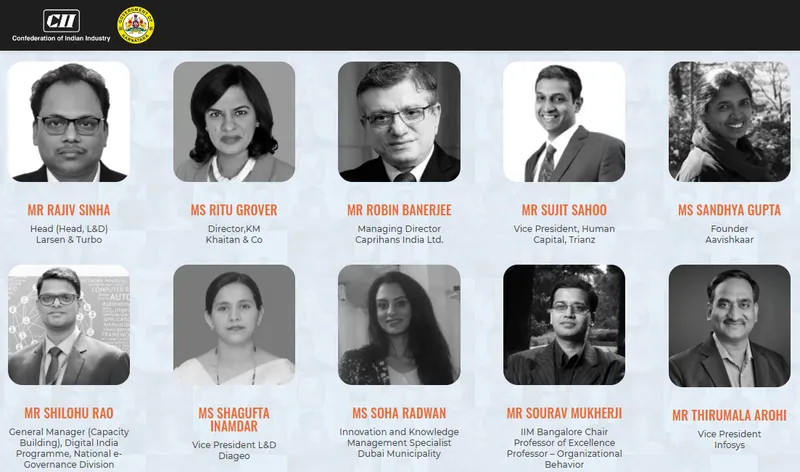
Bosch is combining its capabilities in hardware and software by adding more digital services to its hardware products. “As central IT of Bosch, we support our three different AIoT ecosystems (Home, Industry and Mobility) with an efficient and robust IT environment worldwide,” Zohaib says.
“Large amounts of structured and unstructured data can be made easily available for business needs by using AI and data analysis,” he adds. AI-based solutions enable predictive maintenance of machinery, quality assurance, and improvement of production processes.
“AI is used for detailed production scheduling in highly complex wafer fabs, such as the Bosch plant in Reutlingen. This saves time and costs as it guides the wafers up to 1,000 processing steps. This alone means a five percent faster wafer throughput, with an investment payback time of just three months,” Zohaib explains.
Bosch also strives for close collaboration and coordination in its “connectories.” The co-creation spaces are hubs for the IoT community, bringing together technology talent from universities, startups, and companies with “Boschlers,” he describes.
“The central IT group serves and supports nearly 240 connected plants. Bosch Business creates solutions based on our IT services. These include microservices as well as digital twins of the production line, which can be used for predictive maintenance or remote monitoring, and AI-based solutions for machine learning,” Zohaib says.
Another example he cites is that of the European GAIA-X initiative, which aims to establish an open, digital ecosystem for enabling companies to share data multilaterally and scale data-based business models worldwide.
“Bosch is one of the 22 founding members along with other automotive players. The rapid development of AI is also contingent on the availability of large, exploitable amounts of data. Sovereignty and access to this data are essential for digital services and their associated ecosystems to be successful,” Zohaib explains.
As future trends, he sees a growing marriage between artificial intelligence (AI) and the internet of things (IoT). “This combination will create vast growth opportunities in markets,” he says. Bosch is looking to create additional benefits for customers by lowering energy costs and increasing comfort and safety.
He also offers tips for business leaders in this space. “The time cannot be better than this. We all have realised the importance of data as the new oil,” he observes.
“Responsibly, but with calculated risk, the earlier you grab the market by launching your idea or product, the more chances of success you have. Fail early, Fail fast,” Zohaib sums up.
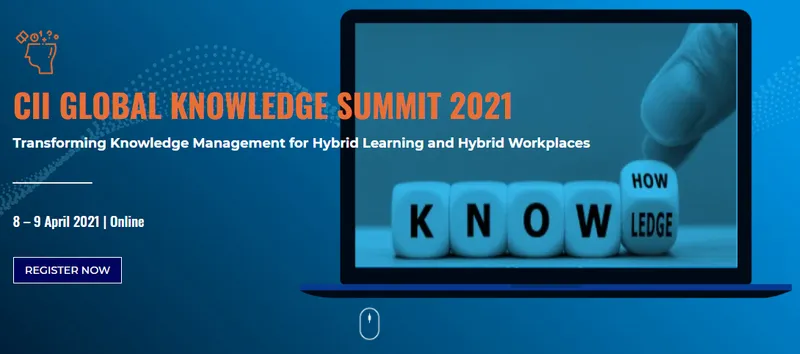
Digital impacts and workforce transformation
The rise of digital technology in the consumer and corporate worlds has wide-ranging implications for organisational culture, business strategy, and workforce upskilling.
“The requirement around social, technological, and emotional skills will grow in abundance,” predicts Geeta Gurnani, Country Head, Modern Work and Security Business, Microsoft. Communication, empathy and resilience are key.
Given the dearth of non-verbal cues in many online interactions, it becomes even more important for every person to have good communication skills, she explains. “With the uncertainty and pressures of managing work and life, it is important to build resilience,” she adds.
“Learn empathy. We all are in the same storm but different boats, so it is important to have empathy for varied circumstances that people are dealing with,” Geeta advises. She cites Satya Nadella in this regard: Empathy is a muscle, so it needs to be exercised.
In a world of increasing AI, automation and machines, humans need to leverage technology to solve problems that might not have been possible earlier, she adds.
Geeta refers to the book from Gary Kasparov, Deep Thinking: Where Machine Intelligence Ends and Human Creativity Begins. He describes that humans can partner with machines in order to produce results better than either can achieve alone.
“Take the example of the healthcare industry, where a diagnosis is possible with a lot of data correlation thanks to AI and automation,” Geeta explains.
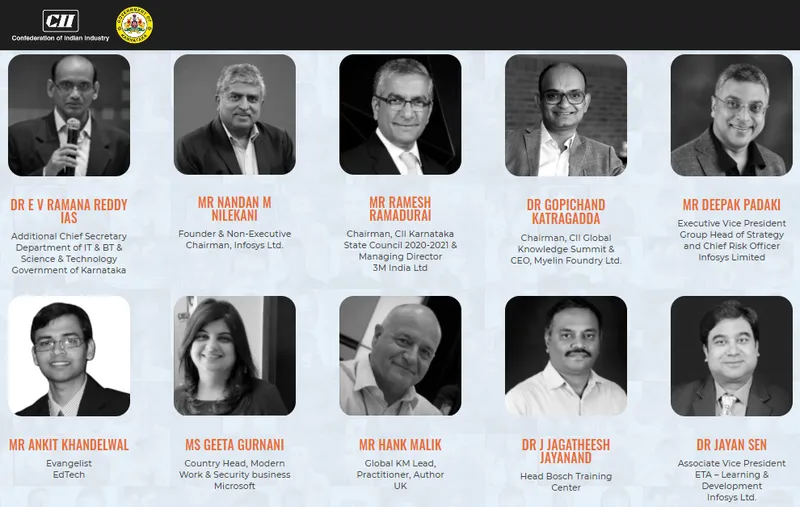
“The onset of COVID-19 over the last year totally revitalised knowledge work, and this will continue. Knowledge work would need to keep evolving with all AI tech-based practices, bringing more tech intensity in conventional tasks,” she describes.
“But this is a harbinger of retaining the “core sense of purpose” or bringing in human empathy,” Geeta adds.
She also cites some inspiring examples of digital transformation in action during the pandemic, in healthcare, education, and rural communities.
“Ganga Hospital conducted a two-day annual surgery conference with 550 surgeons from 27 countries in attendance. It was India’s first-ever live surgery conference enabled through Microsoft Teams,” she describes.
Around 20 hours of the surgical demonstration were possible every day, and 21 procedures were featured, according to Dr S Raja Sabapathy, Chairman of the Department of Plastic Surgery, Ganga Medical Centre and Hospital.
In the education sector, Aakash Educational Services collaborated with Microsoft to benefit nearly 2.5 lakh students and 2,000 teachers across its 210+ branches.
Aga Khan Rural Support Programme and SEEDS India empowered marginalised communities in rural India to tackle COVID-19 with virtual training via Microsoft Teams. “400 employees of AKRSPI collaborated virtually, spread across 70 locations in India’s hinterlands,” Geeta describes.
Looking ahead, Geeta sees more changes in skills and training needs. More companies are incorporating training into their daily workflows so that instead of sending employees elsewhere to get training, they can get training and certifications as part of their jobs.
“Workforce skills are changing with advanced technology. The adoption of automation and AI technologies will transform the workplace as people increasingly interact with ever-smarter machines,” Geeta suggests. This will improve corporate performance, which also calls for upskilling in social and emotional domains.
“In the world of uncertainty or unpredictability, and even before, I have been a big believer of co-creation and collaboration. It accelerates innovation,” Geeta explains, pointing to collaborations across sectors that transformed education, medicine, and frontline worker support during the pandemic.
“Once you have established the connection, you can transcend space. Collaboration platforms are facilitating that, enabling training of people from multiple locations without worrying about travel,” she describes.
Geeta offers tips for business leaders rolling out digital transformation initiatives. “Employee well-being and experience will be an important productivity parameter in the hybrid workplace,” she says.
She cites Satya Nadella in this regard: “Time in an attention economy is the only scarce commodity.” He regards attention as the new oil, whereas data is plentiful.
Geeta identifies six pillars of employee success, citing Glint research: wellbeing, connection, focus, empowerment, growth, and purpose.
“Employees should feel safe at work – physically, mentally, and emotionally. They should feel uniquely valued and be treated equitably and with dignity,” she describes. They should be trusted and respected, and given feedback to help stay on track.
“Employees should easily be able to find information, people, tools, and resources they need,” Geeta adds. They should be empowered to make decisions, maximise experience and strengths, and be a part of work that has a larger meaningful impact.
“While investing in tech to enable the above experiences, business leaders should be sponsors of cultural transformation. This should not be an HR initiative,” Geeta signs off, pointing to the Microsoft Viva initiative as an example.



